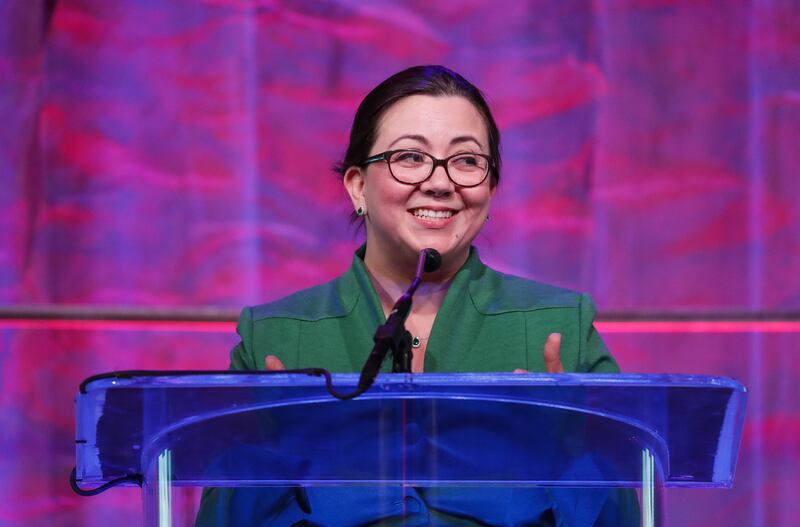SALT LAKE CITY — For Utah Democratic Party Chairwoman Daisy Thomas, the decision by lawmakers to pay for a 2020 presidential primary on Super Tuesday is almost too good to be true.
"It'll mean rainbows and unicorns at this point. It will be wonderful to have the state stepping up," Thomas said, recalling 2016's party-run caucuses where Utahns lined up for hours to vote their preferences for president.
"It is something that I think the state should be handling," she said. "Just functionally, it's going to be run more smoothly and professionally. Hopefully, we'll reduce not only the wait times but also the amount of frustration people felt."
Especially in an election year that Thomas is counting on to energize Utah's Democrats, who hold only limited elected offices. There are more than two dozen Democrats either already in or seriously considering a White House bid.
A few, including Massachusetts Sen. Elizabeth Warren and former U.S. Secretary of Housing and Urban Development Julian Castro, have already made stops in Salt Lake City to court voters.
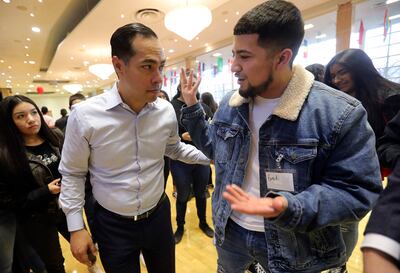
Although Utah has not voted for a Democrat for president since then-President Lyndon Johnson in 1964, President Donald Trump's relative unpopularity in a such a strongly Republican state offers them some hope.
"I love that there's so much energy," Thomas said. Having so many potential Democratic presidential candidates is going to get voters "really excited because politics is very, very emotional right now, and it's exhausting."
Democrats had little say when the Utah Republican Party chose to hold a presidential preference vote at their late March caucuses to boost interest in the meetings, leading the GOP-controlled Legislature to skip funding for that primary election.
Both Republicans and Democrats ended up having problems accommodating everyone who wanted to participate in those caucuses and, in the end, fewer Utahns turned out to vote for their presidential pick than in previous primary elections.
Sen. Curt Bramble, R-Provo, the sponsor of this session's primary election bill, SB242, wasn't going to let that happen again next year, even though there's not likely to be much of a Republican race with Trump running for a second term.
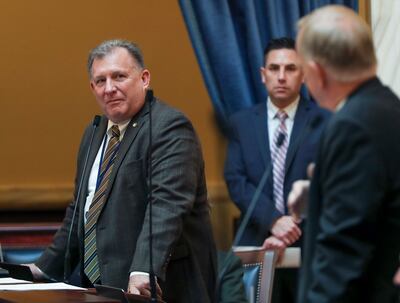
"That's a rather myopic view of the world," Bramble said. "This was a collective effort. This was not a Republican initiative or a Democratic initiative. This was the state of Utah stepping up and filling an obligation to voters."
The 2017 Legislature had already passed a bill mandating the state hold a presidential primary, but without funding, it would have to be part of the regular election-year primary in June.
Bramble said he was encouraged by Trump's re-election campaign to push for the primary election and that neither Republicans nor Democrats wanted to wait until June because they would have lost delegates to their national conventions.
A funding bill passed in the final hours of the 2019 Legislature contained $2.9 million for a primary, and SB242 spelled out the date of next year's primary election will be on the first Tuesday in March.
That will be on March 3 in 2020, and what's known as Super Tuesday, the date the most states hold presidential primaries. Bramble said that joining with other states will increase Utah's profile in the presidential race.
"I'm really happy that we've chosen Super Tuesday. It gives Utah a voice in selecting our president and, particularly as a Democrat, we're going to have some decisions to make," said the House sponsor of SB242, Rep. Patrice Arent.
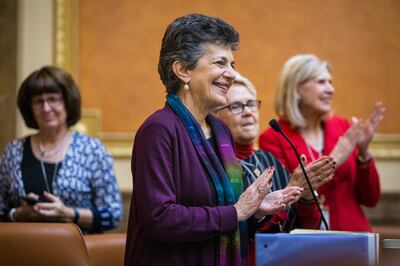
Arent, D-Millcreek, who sponsored the 2017 bill establishing the presidential primary, said lawmakers were looking beyond the next election. "My colleagues appreciate that this is an important part of our democracy."
State Elections Director Justin Lee said next year's presidential primary should "definitely be a better voting experience" than 2016, when an election run by party volunteers was crammed into a few hours.
"Holding it earlier in the year will certainly make the results of the presidential primary, whatever they may be, more interesting and kind of put us on the map nationally," Lee said.
He said that could mean a repeat of 2016, when hotly contested races for both the Republican and Democratic nomination drew nearly every major candidate to Utah before the caucus vote.
Because presidential candidates seeking a spot on next year's primary ballot in Utah must declare their candidacy between August and December, Lee said the 2020 election will heat up much sooner than usual.
Outgoing Utah GOP Chairman Rob Anderson said the Super Tuesday primary will bring more attention to the state, but for Republicans, may not have that much of an impact.
"It drives some heightened participation," Anderson said. "Not that it will affect this (coming) year much, which might be a typical coronation for an incumbent president, but in four years, 2024, it might spark more interest and more involvement."
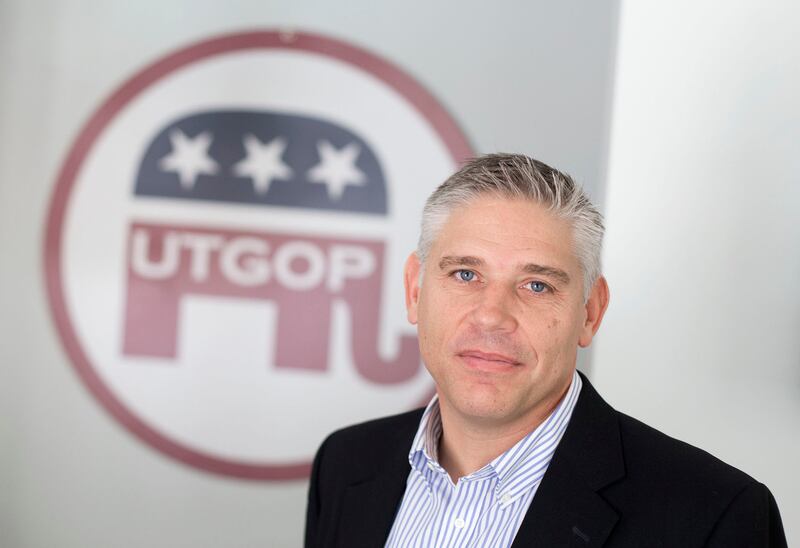
Chris Karpowitz, co-director of BYU's Center for the Study of Elections and Democracy, said even though Utah "is unlikely to be the pivotal state on the Democratic side" in the general election, it has a part to play in the primaries.
Given the growing Democratic field of presidential contenders, Karpowitz said "any opportunity for a candidate to gain some traction and to record a win will be helpful for that candidate," including in a reliably Republican state like Utah.
"Utah is not large enough to play a major role here, but small states can play an important role early on in winnowing the field and sending a signal to other states about who's viable and who's not," he said.
For Utah Democrats, Karpowitz said the presidential election can fuel momentum in other races in the state. But whether the race has the impact on how Utah Democrats do in 2020 will depend on who the party ends up nominating.
The big winner of the 2016 Democratic caucus vote in Utah, Vermont Sen. Bernie Sanders, a self-described Democratic socialist, lost the nomination to former Secretary of State Hillary Clinton but is running again.
Karpowitz said Sanders or another of the progressive Democratic candidates would not be the best choice to help win over voters in the general election, including those who may be considering straying from Trump.
"A moderate Democrat who can articulate some sensible reasons for independent and even some moderate Republicans to take a second look would be a very good thing for the Democratic Party in the state of Utah," he said.
Thomas, an organizer for Sanders' campaign in Utah in 2016, said she's neutral this time around as the Democratic chairwoman. All of the Democratic presidential contenders have supports in Utah, Thomas said.
"Our Democrats are a very wide base, but we have certain issues we definitely want paid attention to," she said, citing issues the party has fought for including the full Medicaid expansion approved by voters but modified by the Legislature.
"I want to make sure that the presidential candidates, when they're coming out here to seek our votes, that they're giving us time and attention," Thomas said, "and not just waiting for us to write checks."

